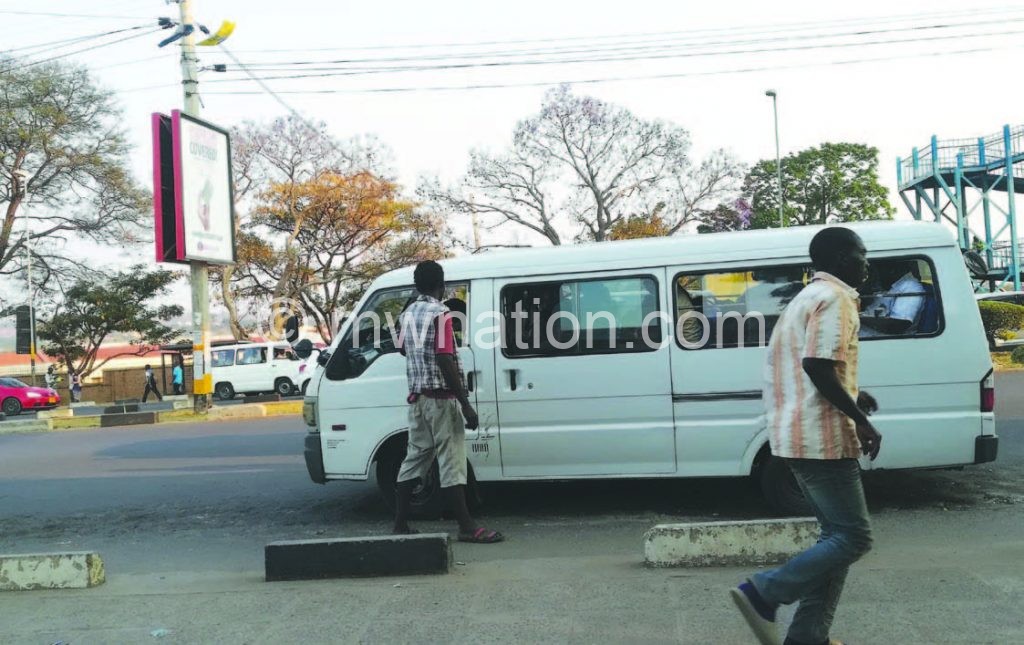Fuel crisis hits hard minibus commuters
Minibus commuters have started feeling the pinch of the current fuel scarcity in the country as some minibus operators are now charging more than the normal fares for various routes.
On average, the minibus operators are charging an extra K200 for short distance routes within cities and an extra K500 for long distance routes.

The extra fares are being charged on top of the normal fares commuters have all along been paying and the situation is prevalent in the main cities of Blantyre, Lilongwe and Mzuzu.
In an interview yesterday, Minibus Owners Association of Malawi (Moam) general secretary Coaxley Kamange yesterday justified the decision by operators to adjust upwards the fares, but said they are not formal.
He said: “We have indeed been receiving complaints and a survey we conducted as Moam showed that minibus operators are indeed adjusting minibus fares for various routes when they want to.
“It’s justified because they are trying to cover for the differences they incur whenever they are searching for fuel. For example, for someone who operates on the Limbe-Mangochi route and goes to buy fuel at Kameza Roundabout it means he or she will have to use extra fuel. So, the burden rests on the commuter.”
Since end of August, Malawians have been facing erratic supply of fuel and diesel, which has forced motorists buy the two commodities from black market dealers.
The black market dealers have since taken advantage of the situation who are charging between K3 500 and K5 000 per litre.
The initial pump price for petrol in fuel service stations is K1 746 per litre while diesel is selling at K1 920 per litre.
Kamange said it would also be prudent for the Malawi Energy Regulatory Authority (Mera) to prioritise minibus operators in the purchase of fuel in jerry cans at all service stations instead of paying for a permit from the energy regulatory body.
In a separate interview, Consumers Association of Malawi executive director John Kapito said while the fuel scarcity has triggered prices of essential commodities, the most affected is public transport.
He said it must be understood that the minibus operators have also to compensate the time they spend sleeping and staying on long queues trying to get the fuel.
“It’s now three months with motorists sleeping at fuel service stations and this means that we have now few minibuses on the road as many can’t access fuel and this has also an implication on fares as demand for transportation gets high with few minibuses on the road.”
In random interviews yesterday, commuters told The Nation they have no option, but to pay for more than the normal fares.
Mera data shows that on average Malawians use 845 000 litres of petrol and 834 000 litres of diesel in a day.






One Comment